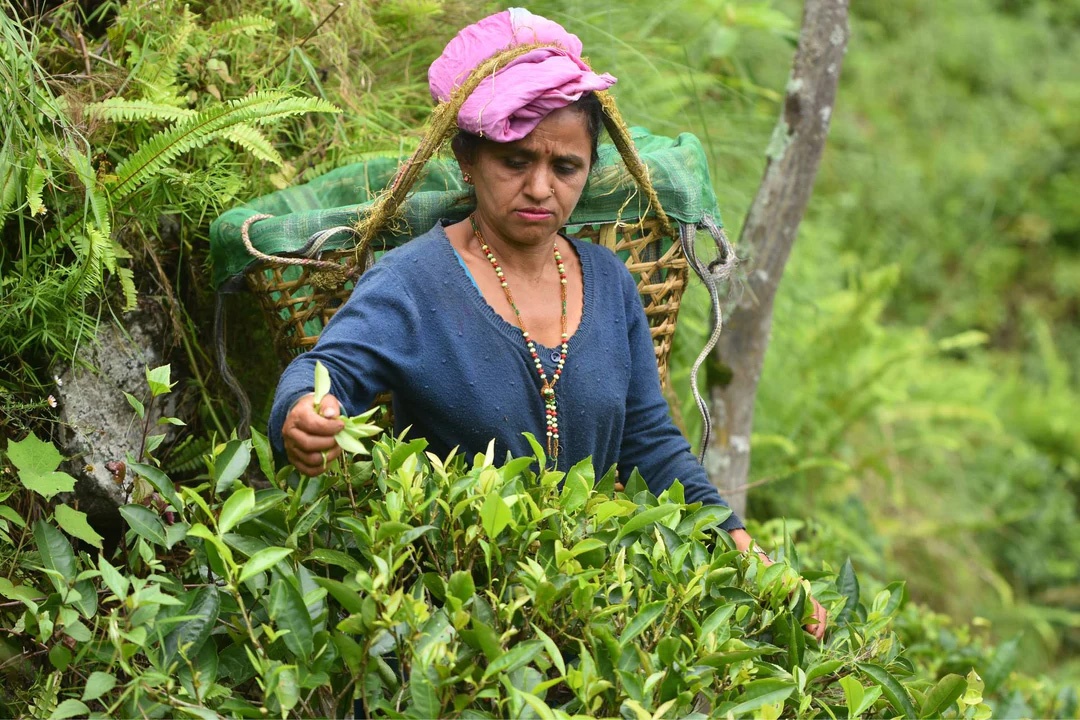Kanchanjangha Tea Estate was established in 1984 by Deepak Banskota, a key figure in Nepal’s tea movement, along with local farmers and is based on a cooperative model. It was after a visit to the tea gardens to Darjeeling as a teenager that Mr Banskota first became inspired to use tea to advance the economic situation of his own village.
He later convinced other farmers to join together and pool their marginal landholdings. Over a hundred farmers joined forces, and in 1984 the first orthodox tea garden (covering 94 hectares) was formally established. Today the land now produces premium, organic, and orthodox teas.
Kanchanjangha is proud of its reputation as an innovator in Nepali tea. It also operates a research centre on site. It was the first tea estate in Nepal to be certified organic. The garden continues to promote new sustainable practices, including using renewable energy for drying its tea and intercropping native species to promote biodiversity.
From the outset, Kanchanjangha has been focused on social responsibility. A hundred cooperative members who also actively farm the land are owners themselves. As shareholders they participate in the decision-making process and receive dividends. The organisation also pays for farmers’ housing, the children’s education and subsidises food costs. In a global industry that relies heavily on cheap migrant labour to harvest fresh leaves, Kanchanjangha provides a notable exception.


